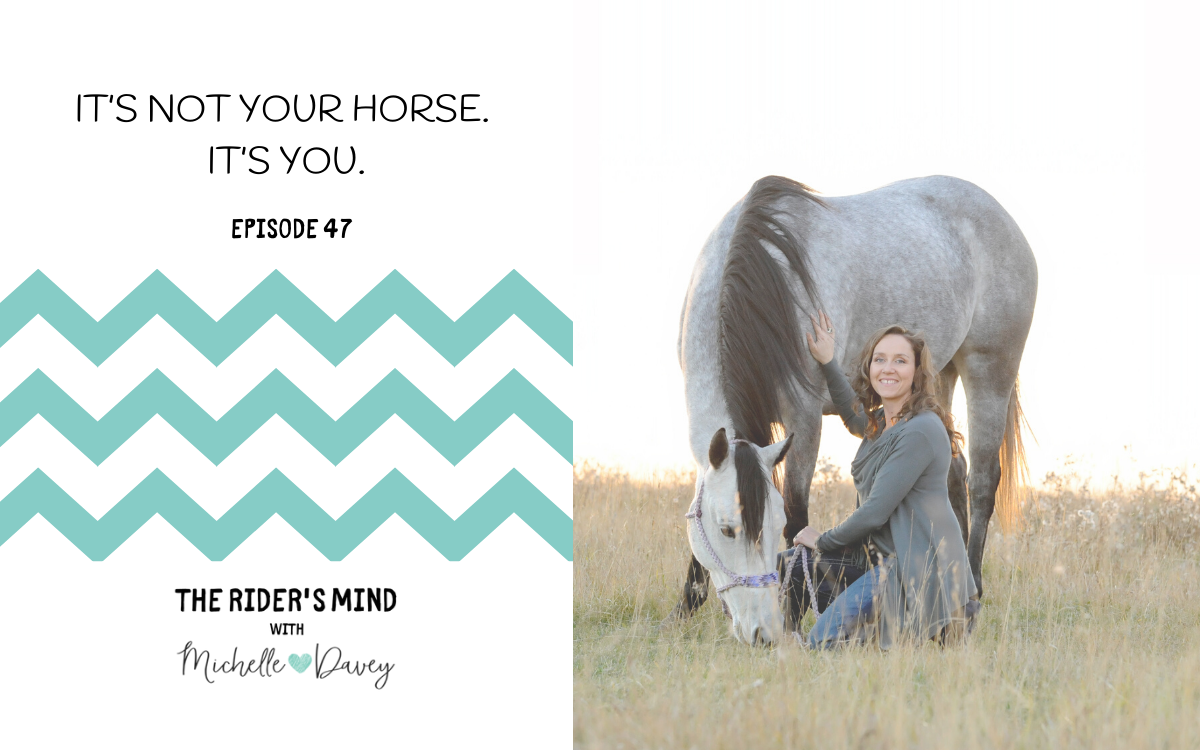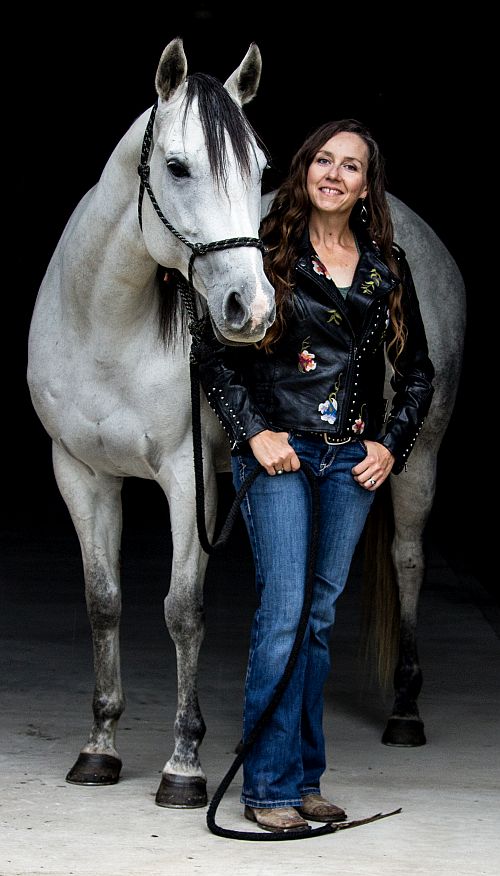
The Rider’s Mind Podcast Episode 47: It’s Not Your Horse. It’s You.
It’s not your horse. It’s you. It’s our job to show up for our horses so they can perform at their highest level. In this episode, I talk about all the responsibilities we have as horse people.
We have a huge responsibility as a rider to show up and be our best selves for our horses. Horses are a victim of their circumstances…sometimes they are a victim of their rider. You don’t want to be that rider.
How well have you prepared your horse for what you are about to ask them to do?
You want to make sure your horse understands you before you ask them for something. When a horse moves on to a new owner, they have to relearn our “language” to understand our cues. If you’ve had your horse for a while and you know each other, it is your responsibility to lead the communication. Are you listening to your horse? The feedback you get is your horse’s actions. Is he doing what you asked? Is he happy?
This is a garbage in, garbage out situation. It’s like programming a computer: if you program poorly, the output is poor.
You get what you allow.
Disclaimer: sometimes horses are just horses. They might spook at a deer that jumps out from the bush or get scared by a shadow. This is not necessarily a mirror of you in that moment, but might indicate that you could work on how your horses respond to scary things.
Sometimes the blame gets placed on the horse when it shouldn’t be. You might say “she keeps doing this” or “my horse keeps hitting a barrel” or “both of my horses… ” You know that isn’t true. It’s not your horse. You are giving some sort of message and the horse is doing what she thinks you told her to do.
We train our horses to listen to us.
If we don’t show up and tell them to do the right things, they might do the wrong thing because they are listening to us. We’ve trained them to listen to us, so if we don’t do our job in competition, they are on their own.
The more finely tuned the instrument, the better it needs to be played. The more finely tuned your horse is, the better you need to ride!
You might have the best broke horse out there, but if you can’t ride the “brokeness” when it’s time for the event, what’s the point?
Maybe it’s time to stop loping circles and start looking in the mirror at what’s holding you back from being able to ride your finely tuned horse. It is so important to be aware of what your body is telling your horse (whether it’s in slow work or fast work). Pay attention. Notice your body. Your head alone weighs 10 pounds. Just where you look is going to send a message to your horse.
Your horse’s body and his actions mirror your body and actions.
Every part of your body is copied in the horse. If you drop a shoulder, they drop theirs. Got a lean? Now they do too. We know the horse is a finely tuned energetic being, so what kind of energetic communication are you sending? Fear? Tension? Horses can also be a mirror at an energetic level. Are you nervous? Fearful? Anxious? Angry?
Chiropractor or body workers find trends in horses. How you ride affects your horses. Look after yourself.
Look after your health, your body and your mind.
Sometimes I think we give horses too much credit for what we think they know. Give them the benefit of the doubt that their actions were not premeditated. Horses do not plan to hit a barrel or shoulder in or anything else.
Horses are either reacting to pain (or anticipated pain) or what you have been telling them to do over and over so they think it’s right. Or they are reacting to what you just told them to do and, since you’re the boss, they listened. Maybe you didn’t ask for that reaction today, but you’ve asked for it in your last two runs.
We have a lot of responsibility as horsemen.
We need to get our ducks in a row so that we can communicate effectively to our horses. We need to think like a horse in order to understand where they are coming from and how we need to ask to get them to go where we would like.
We need to look after ourselves and be keenly aware of the messages we are sending to our horse.
Always stop and ask yourself: Why did he respond this way and not the way I wanted? How can I ask the question differently? How can I communicate more clearly?
Join the discussion in the The Rider’s Mind Community on Facebook. As a member of this community, you’ll also get tips and videos from me.
Want to connect or ask me a question? Find me on Instagram or Facebook.
Learn with Me
If you’re looking to make changes to your mindset, be sure to sign up for my free Next-Level Mindset Mini Course.
You can also get on the waitlist for Stride, my next-level barrel racing group. This group receives video training and coaching from me and Stride members have access to special guests. Course.
Subscribe: Apple Podcasts or Spotify

